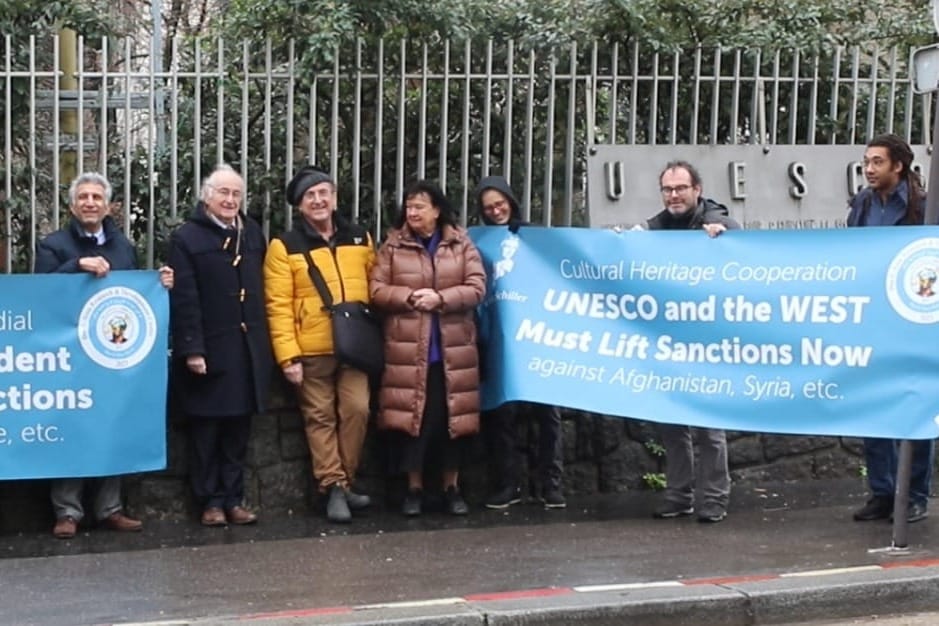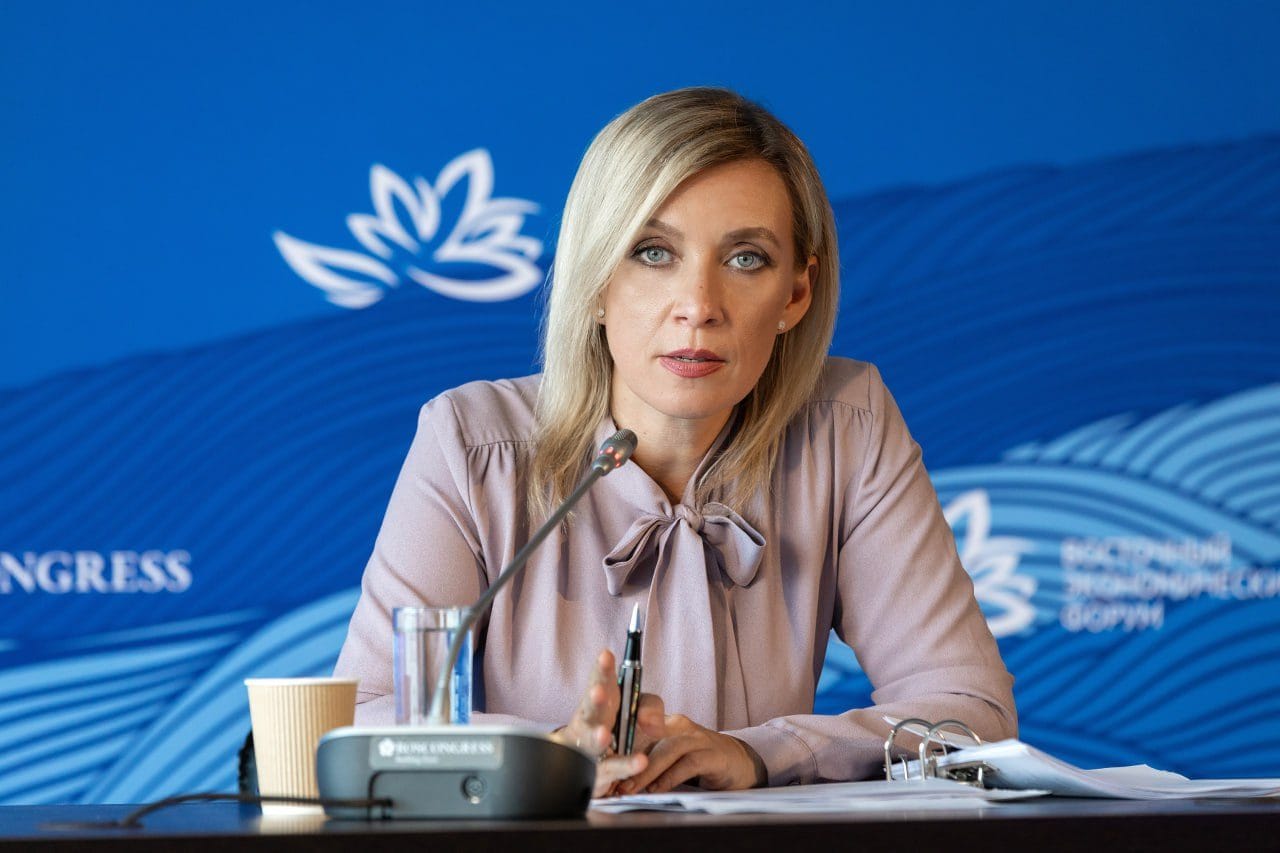A delegation from the Schiller Institute and the Ibn Sina Center for Research and Development today delivered a petition to UNESCO world headquarters in Paris, calling on UNESCO to re-establish relations with Afghanistan in order to help save the numerous cultural relics which are in danger from terrorist groups and other predators, and demanding that UNESCO re-establish activities of cultural cooperation with all nations, such as Syria, where the agency has selectively imposed sanctions and bans.
Schiller Institute founder and leader Helga Zepp-LaRouche and Paris Schiller Institute leader Karel Vereycken led the delegation, and issued statements to the media outside UNESCO headquarters. Zepp-LaRouche said, “If the sanctions continue, it would mean to continue the geopolitical game which has been played with Afghanistan for a very long time. Our common cultural heritage must be above ephemeral strife, so we will fight for this for the sake of our own one identity as one human species, or as one common heritage.” The four-minute video statement is here.
The delegation released a statement, which was delivered to UNESCO, issued Jan. 31 by the Ministry of Information and Culture, of the Islamic Emirate of Afghanistan, signed by Deputy Minister of Culture and Art Mowlavi Atiqullah Azizi. It states in part, “This Ministry asks UNESCO and other international organizations, working on preservation of the world’s tangible and intangible cultural heritage, to support Afghanistan in preservation of its tangible and intangible cultural heritage, including the ones belonging to Islamic and non/pre-Islamic periods of its history….”
Following the total boycott of Afghanistan in 2021 by the United States, UNESCO also ended contact with Afghan authorities, despite the fact that many other UN agencies continued activities in the country, and function there to this day.
At a conference in Kabul in November, 2023, on economic reconstruction, attended by a Schiller Institute delegation, it was decided that world public opinion should be brought to bear to change the UNESCO decision.






